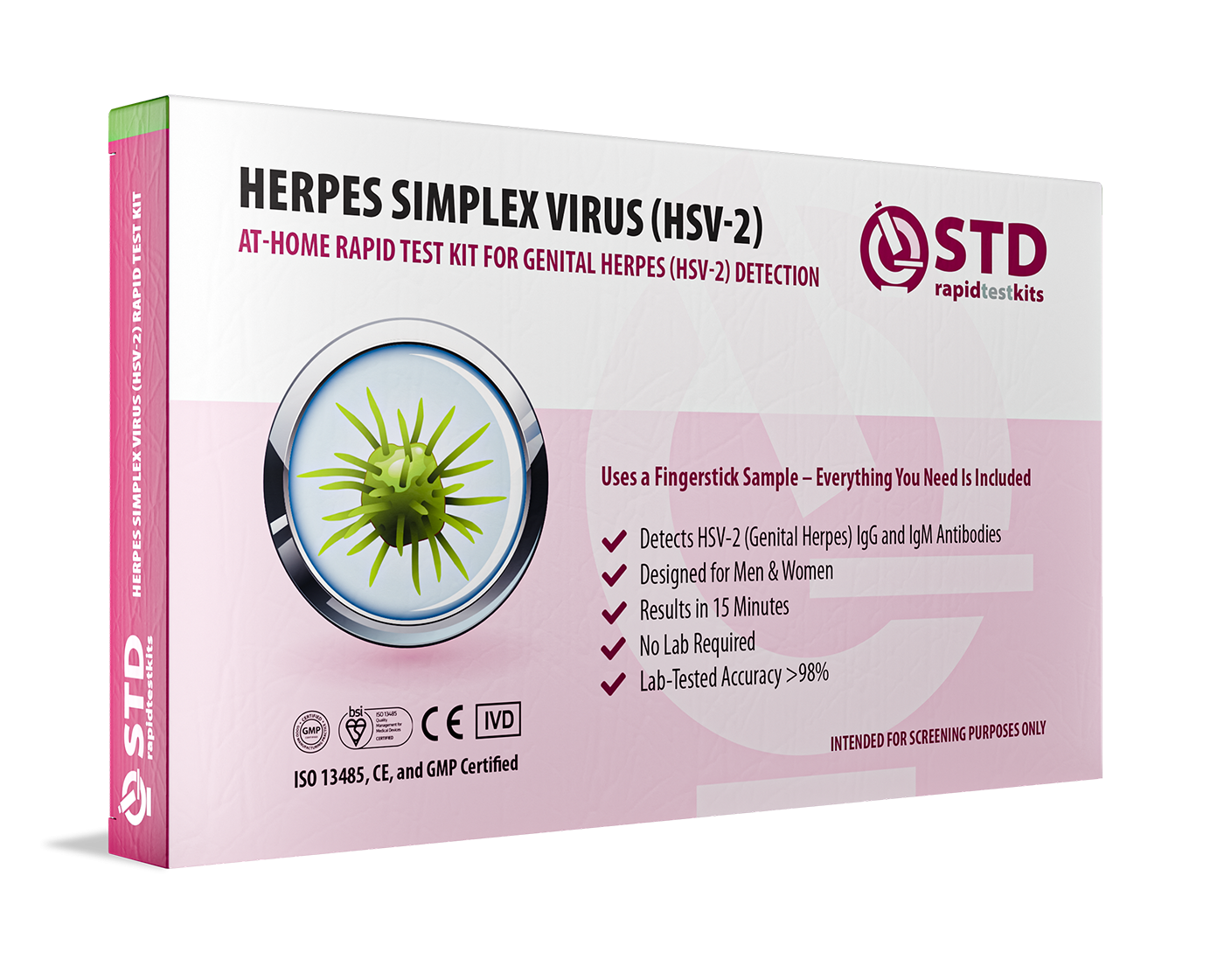It Came Back… Or Did It? Herpes Reactivation vs Reinfection
When Intimacy Turns Into Infection: The Moment Everything Changed
We had unprotected sex a few times, never rough, never rushed. There were no visible signs, no warning. So when I noticed a painful blister near my genitals, I brushed it off as friction. Days later, when the rash spread and urinating felt like fire, panic set in. A trip to the clinic confirmed it: Genital Herpes. The diagnosis hit harder than I expected, not just physically, but emotionally. I kept thinking, “Did she know?” and “Why didn’t she tell me?”
This is how STDs often show up. Quietly. In the shadows between skin and assumption. Herpes is one of the most common STDs globally, with estimates suggesting over half a billion people are living with HSV-2 or HSV-1 genitally. And yet, the stigma sticks harder than the virus itself.
Herpes doesn’t mean someone is “dirty” or unfaithful. It just means you’re human, and so are your partners. The virus lives in nerve endings and can be transmitted even when symptoms aren’t present. That’s why surprise diagnoses happen more often than anyone admits.

People are also looking for: Can you get herpes from oral sex?
Herpes, Betrayal, and the Shattering of Trust
What made this harder wasn’t just the burning or the flu-like symptoms. It was that she didn’t tell me. When I confronted her, she cried and said she “thought she was fine.” She hadn’t had an outbreak in over a year, and she assumed it meant she wasn’t contagious anymore.
This is a dangerously common misunderstanding. Herpes can be transmitted even when no sores are visible. It’s called asymptomatic shedding, and it happens randomly. A person can feel completely normal and still pass the virus to someone else.
For days, I looped through guilt, anger, and shame. Was I stupid for not asking? Was she selfish for not telling me? Neither of us had answers, just a diagnosis, a prescription for antivirals, and a silence that stretched into something final.
If you’ve been there, blindsided by someone you trusted, know this: your feelings are valid. Betrayal isn’t just about lies; sometimes, it’s about what’s left unsaid.
The Physical Symptoms No One Warned Me About
I thought herpes would just be a bump or two. Instead, I got hit with a full-body ambush: fever, chills, swollen lymph nodes, and a raw, aching pain in places I didn’t know could hurt. I couldn’t sit comfortably, pee without wincing, or think about anything else.
The first outbreak is often the worst. According to the CDC, initial herpes symptoms can include:
- Sores or blisters: Usually around the genitals, anus, or mouth
- Itching or tingling: Often before sores appear
- Flu-like symptoms: Fever, muscle aches, swollen glands
- Pain during urination: Especially if sores are near the urethra
What they don’t always mention is the emotional toll. Herpes isn't life-threatening, but it can feel like it ruins your life, for a little while, at least. That sense of being “tainted” or “unlovable” creeps in fast. But here’s the truth: over 1 in 6 people in the U.S. have genital herpes. You’re far from alone.
Check Your STD Status in Minutes
Test at Home with RemediumGenital Herpes Test Kit

 For Men & Women
For Men & Women Results in Minutes
Results in Minutes No Lab Needed
No Lab Needed Private & Discreet
Private & DiscreetOrder Now $45.99 $49.00
The Emotional Fallout: Shame, Rage, and Recovery
I stopped dating. I ghosted my friends. I told my boss I had the flu and cried in bed for three days straight. That’s what shame does, it isolates. But herpes doesn’t have to end your love life. It just forces you to be honest in ways most people aren’t ready for.
I joined a support group online, where hundreds of people shared their stories, first outbreaks, bad breakups, good sex after diagnosis. One woman wrote, “Herpes made me better at love.” At first, I rolled my eyes. Then I got it. When you’re forced to be upfront about something stigmatized, it filters out people who aren’t ready for real intimacy.
You don’t need to earn your worth back. You never lost it. What you do need is knowledge, support, and clarity. Start by getting tested. Not just for herpes, but for everything. Because knowing your status is the first step toward healing and honesty.
What the Data Really Says About Herpes
Let’s get this out of the way: Herpes is incredibly common. According to the World Health Organization, more than 3.7 billion people under age 50 have HSV-1 (oral herpes), and around 491 million have HSV-2 (genital herpes). That’s roughly 13% of the global population. And in the U.S.? The CDC estimates about 1 in 6 people aged 14–49 have genital herpes, even if many don’t know it.
The kicker? Most transmissions happen during periods of no symptoms at all. You read that right. No visible sores. No signs. Just the silent, skin-to-skin spread of a virus that’s evolved to hide. That’s why testing matters. And that’s why herpes doesn’t mean someone lied, it may just mean they never knew.
What makes herpes emotionally tougher than, say, Chlamydia or Gonorrhea, is the permanence. There’s no cure, just management. But outbreaks tend to get milder over time, and many people have fewer or none after the first year.

People are also looking for: How do most people react to herpes disclosure?
How to Talk About It (Without Breaking Down)
Telling someone you have herpes feels like the emotional equivalent of stripping naked in public. But it doesn’t have to wreck you, or your future relationships. Honesty is your best filter.
Here’s what worked for me after weeks of anxiety and failed drafts:
- Pick the right moment: Not during sex, not during a fight. Calm, neutral ground is key.
- Stick to facts: “It’s a skin condition caused by a virus. It doesn’t affect fertility or overall health.”
- Be clear about protection: Condoms + antiviral meds = reduced risk by up to 96%.
- Let them ask questions: Curiosity isn’t rejection, it’s engagement.
You don’t owe everyone your status. But if you’re going to sleep with someone? That’s when it counts. And you'd want the same from them, right?
Reclaiming Pleasure: Yes, Sex is Still on the Table
After the diagnosis, I didn’t think I’d ever feel sexy again. But herpes doesn’t erase desire, it just reframes it. I learned that intimacy is deeper when it’s honest. I learned that condoms, meds, and communication create safety, not shame.
There’s even good news here: people with herpes often develop better sexual boundaries. They’re more likely to get tested, use protection, and ask the awkward questions. The result? Healthier sex. Better sex. Because it’s real.
You can still date. You can still love. And yes, you can still get freaky under the right circumstances. Herpes doesn't take that away, it just changes the script.
What About Future Relationships?
Here’s what I feared: that no one would want me again. What actually happened? I found people who were grateful I told them. Some had herpes too. Some had done their own homework and didn’t care. One person said, “Honestly, I trust you more now.”
The key to dating with herpes is filtering. Some people will ghost you. But others? They’ll stay. They’ll ask questions. They’ll see you, and that’s what intimacy really is.
Want to date again but afraid of rejection? Start by learning how to talk about it. Here’s a guide on disclosing your status the right way.
Check Your STD Status in Minutes
Test at Home with RemediumGenital & Oral Herpes Test Kit

 For Men & Women
For Men & Women Results in Minutes
Results in Minutes No Lab Needed
No Lab Needed Private & Discreet
Private & DiscreetOrder Now $75.00 $98.00
For all 2 tests
Common Misconceptions That Still Hurt
Herpes doesn’t mean someone’s “dirty.” It doesn’t mean they cheated. It doesn’t even mean they were irresponsible. But try telling that to the judgment we internalize, or to the internet.
Let’s break down a few dangerous myths:
- Myth: Herpes only happens to people who sleep around. Truth: It only takes one encounter. Many people get it in long-term, even monogamous relationships.
- Myth: You can tell if someone has herpes. Truth: The virus can be dormant. Most people don’t know they’re infected.
- Myth: Herpes will ruin your sex life forever. Truth: You’ll need to communicate more, but great sex is absolutely still possible.
When we treat herpes like a moral failure, people stay silent, and the virus keeps spreading. The more we talk, test, and de-stigmatize, the better for everyone.
Moving Forward Means Testing, Talking, and Thriving
Herpes changed me. Not just my skin, but my confidence, my boundaries, and my empathy. I learned that getting tested isn’t just about infection, it’s about integrity. I learned that being “clean” isn’t a real thing (because we’re not “dirty” to begin with). And I learned that disclosure, while scary, is an act of trust.
If you’re reading this after your own diagnosis, or suspect you might be at risk, don’t wait. Don’t wonder. Start with a test you can take at home, in private, without judgment.
FAQs
1. Can you get herpes from someone who has no symptoms?
Yes. This is called asymptomatic shedding, and it’s one of the most common ways herpes spreads.
2. How soon do herpes symptoms appear after exposure?
Usually within 2 to 12 days, but some people don’t show symptoms for months, or ever.
3. What do genital herpes sores look like?
Small blisters that break open into painful ulcers. They may resemble razor burn or pimples at first.
4. Is there a cure for herpes?
No. But antiviral medications can reduce outbreaks and lower transmission risk.
5. Do I have to tell my partner if I have herpes?
Yes, ethically and often legally, you must disclose before sex.
6. Can I still have kids if I have herpes?
Absolutely. Just inform your doctor, especially during pregnancy.
7. Does herpes mean someone cheated?
Not necessarily. The virus can lie dormant for years before showing symptoms.
8. Can I use a home test for herpes?
Yes. The Genital Herpes 2 Rapid Test Kit offers discreet at-home testing.
9. What if I get rejected because of herpes?
Some people may walk away. But others will respect your honesty. Herpes doesn’t make you unlovable.
10. How do I protect my partner from herpes?
Use condoms, take antivirals, and avoid sex during outbreaks. These steps can reduce risk by over 90%.
Your Future Isn’t Ruined, It’s Just Real
STDs don’t ruin people. Shame does. Silence does. But herpes? It’s just a virus. A skin condition. A thing millions of people manage every day while falling in love, raising families, and living out loud. This isn’t the ending I thought I’d write, but it’s the one I needed. If you’re here, scared and sore and confused, take a breath. You’re going to be okay. Better than okay. Because you’re not alone. And now? You’re informed.










